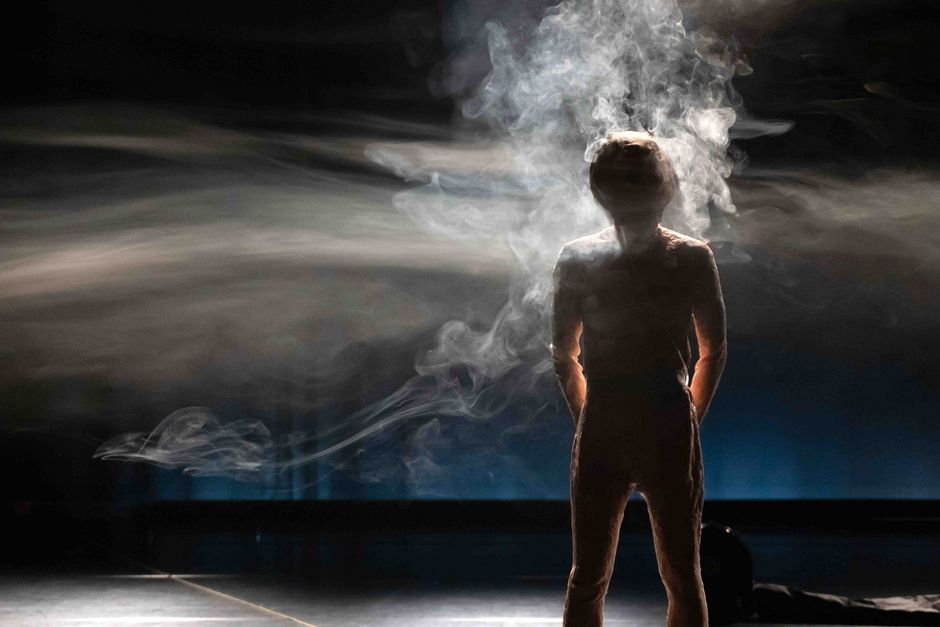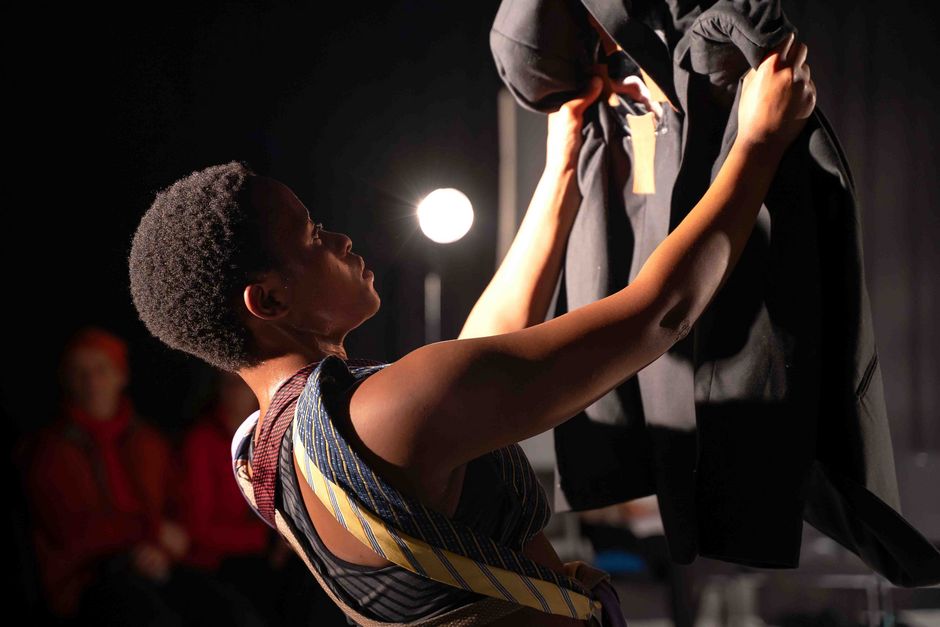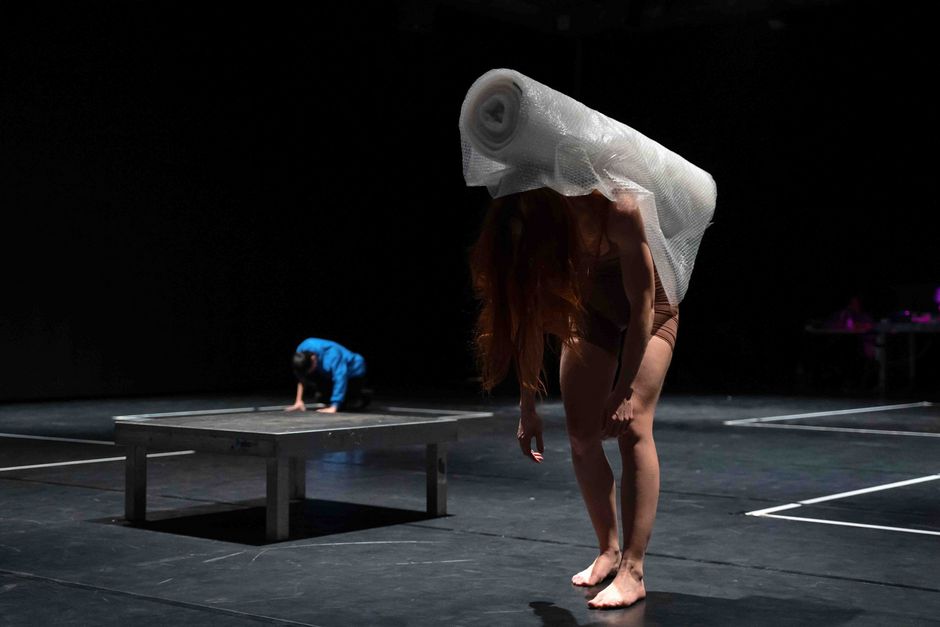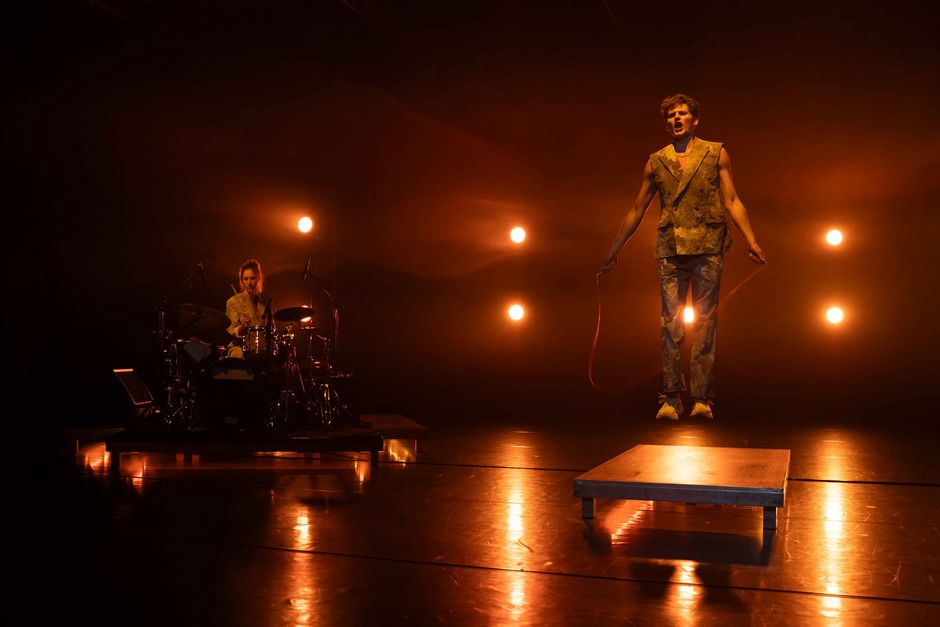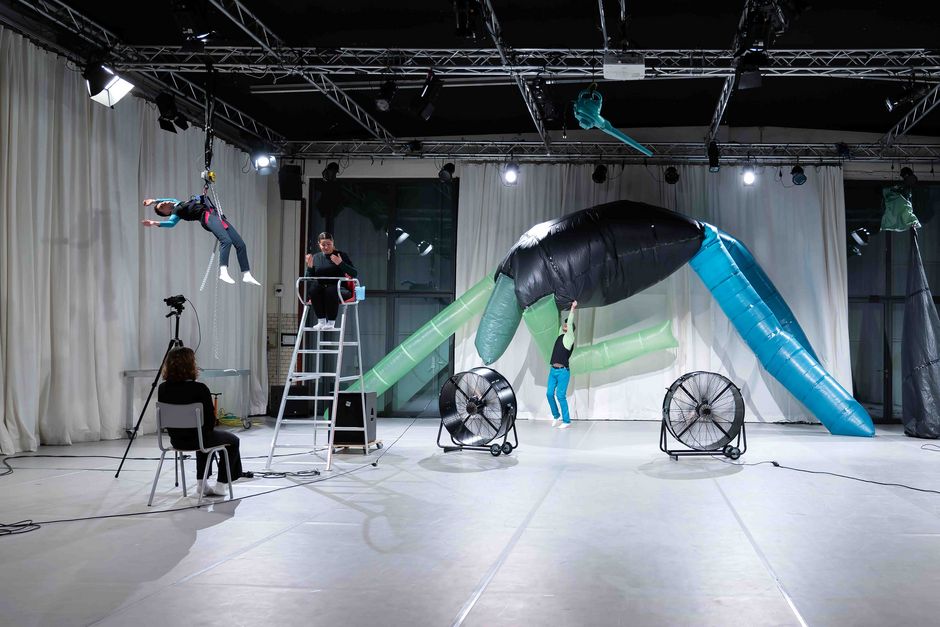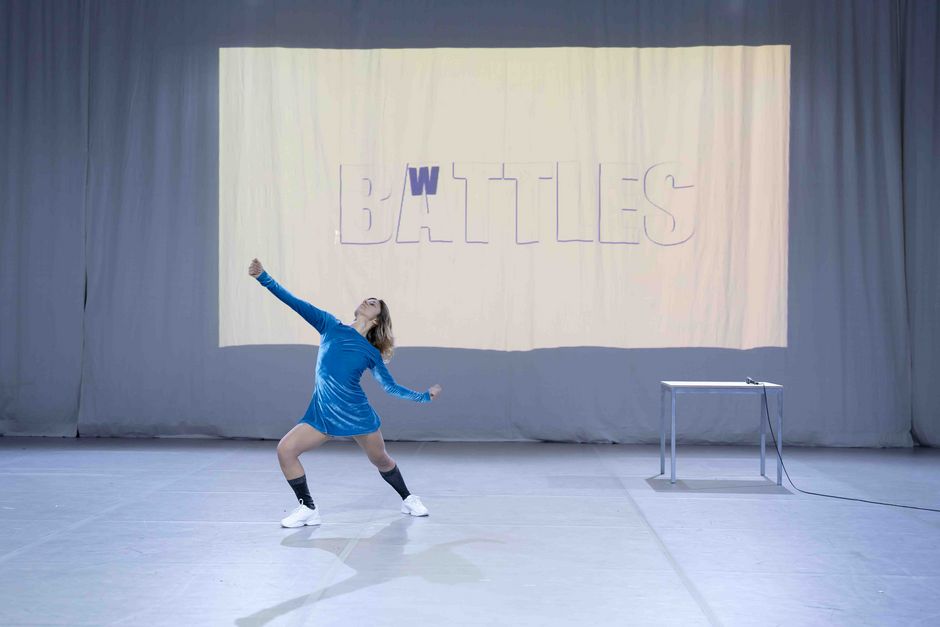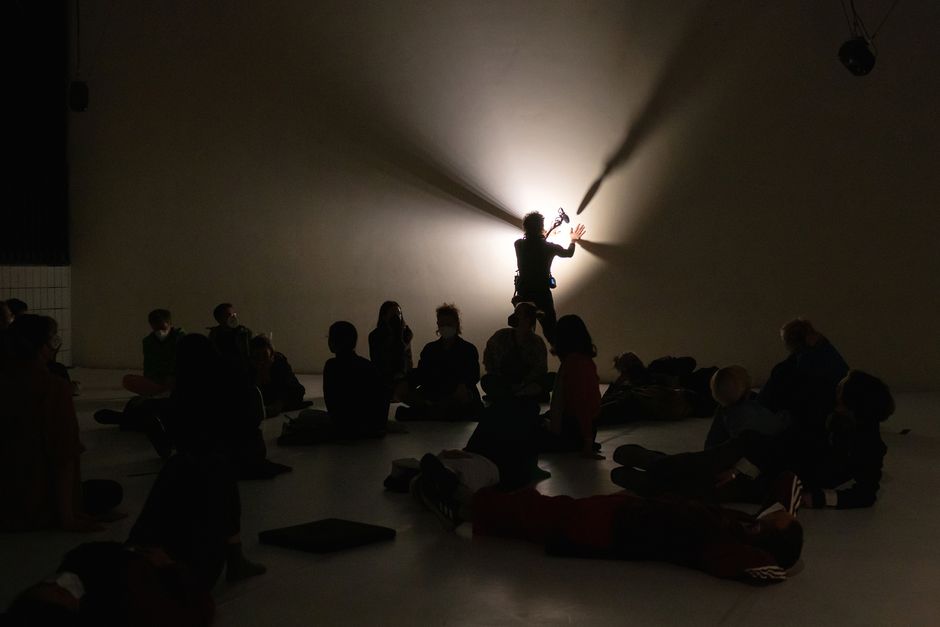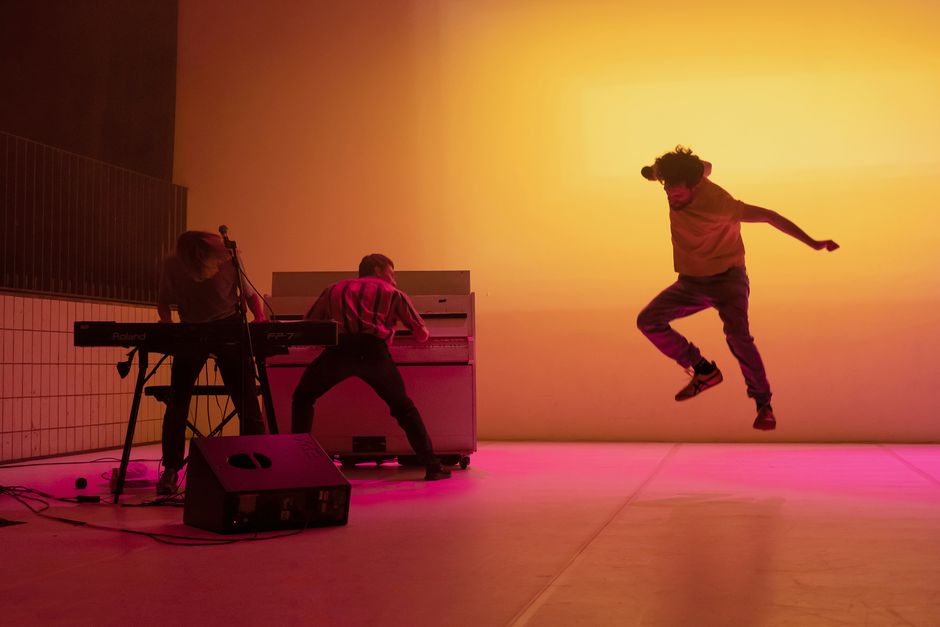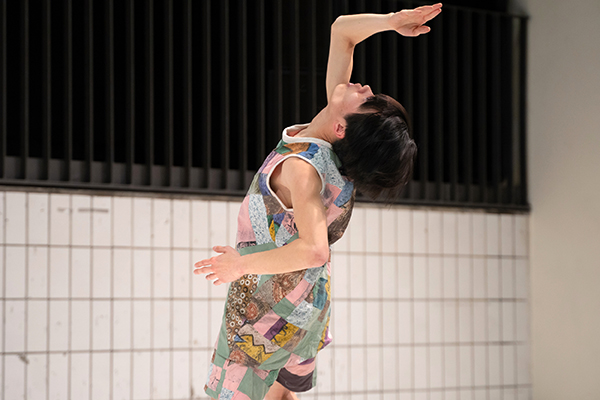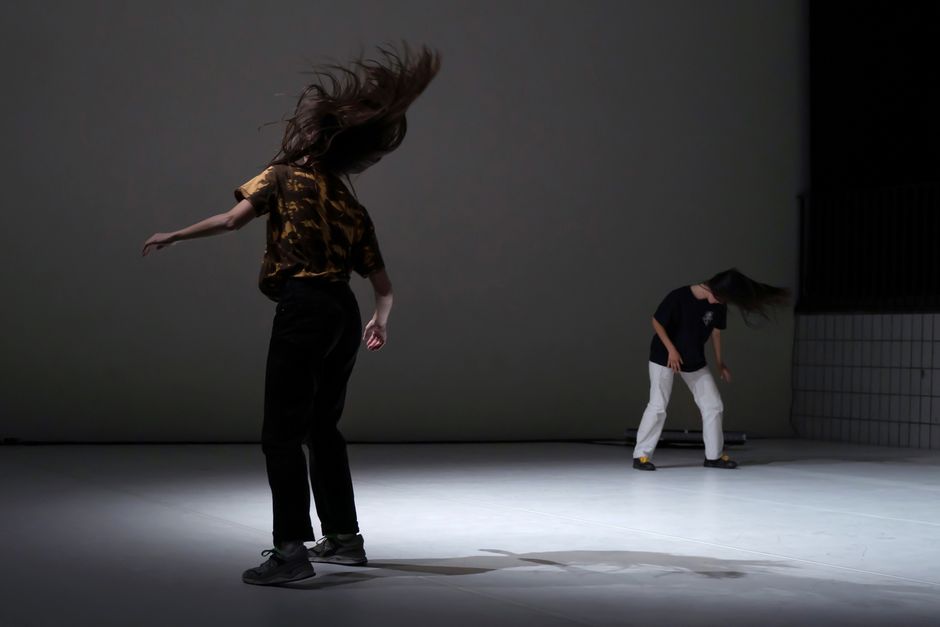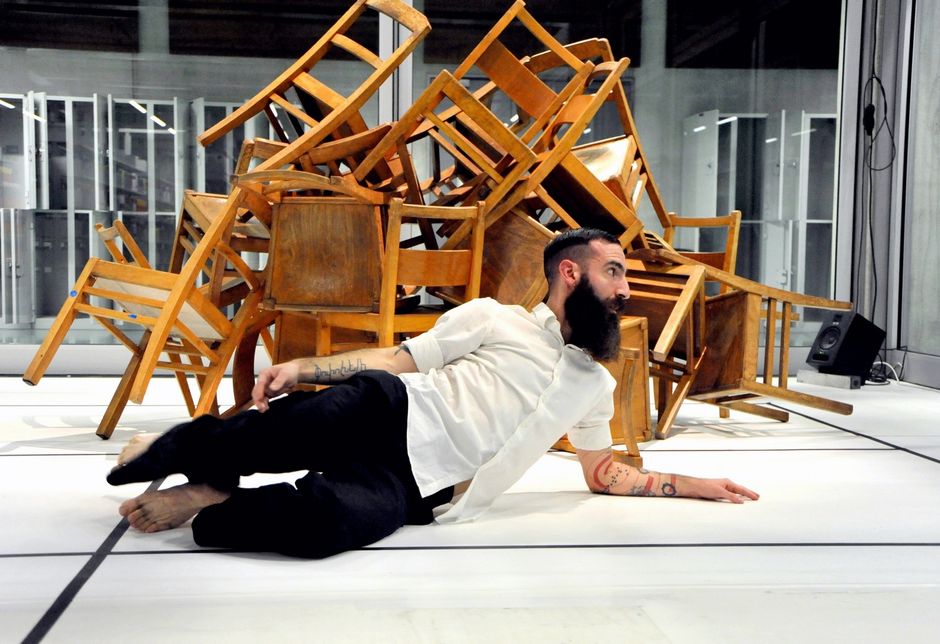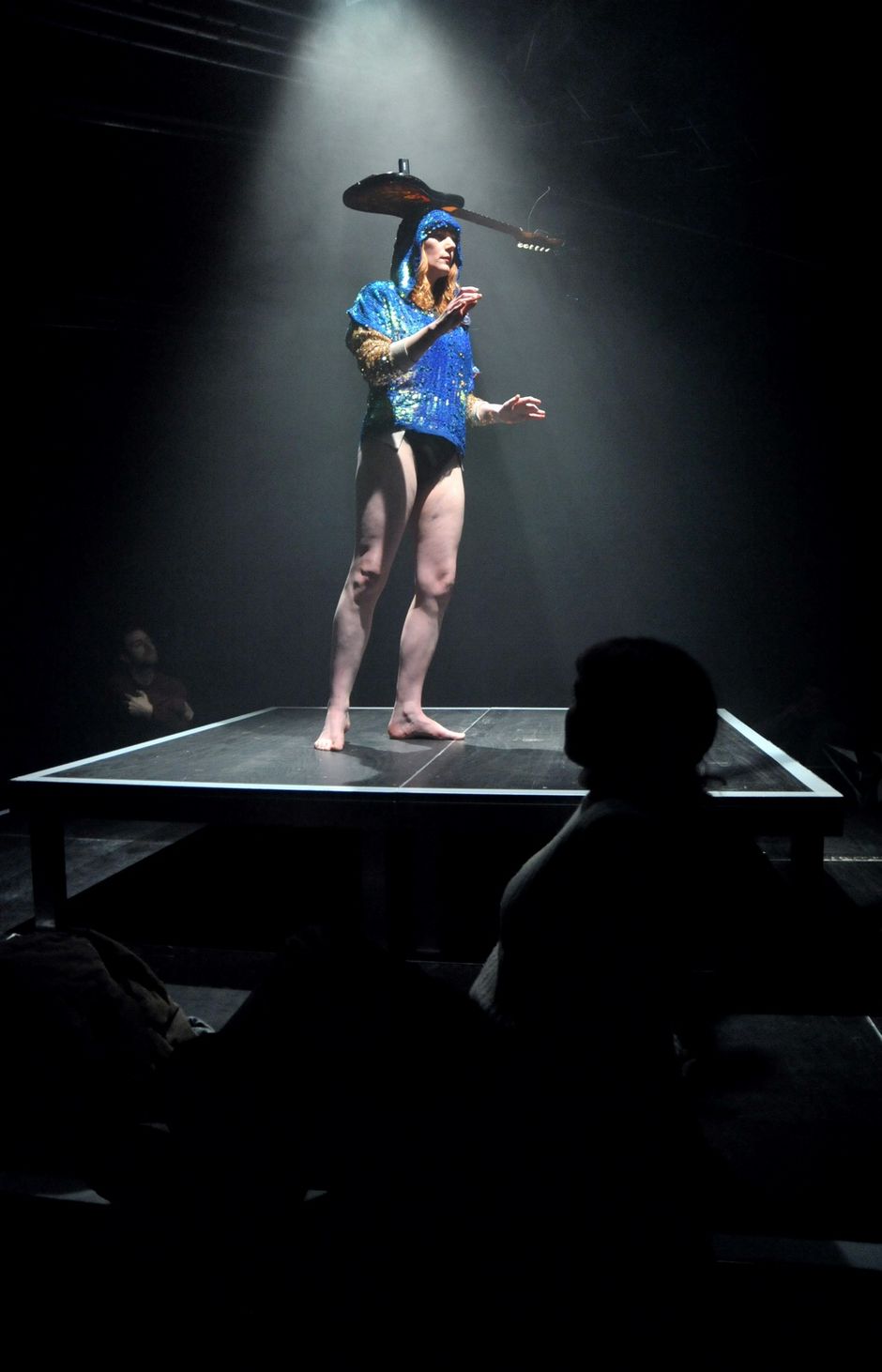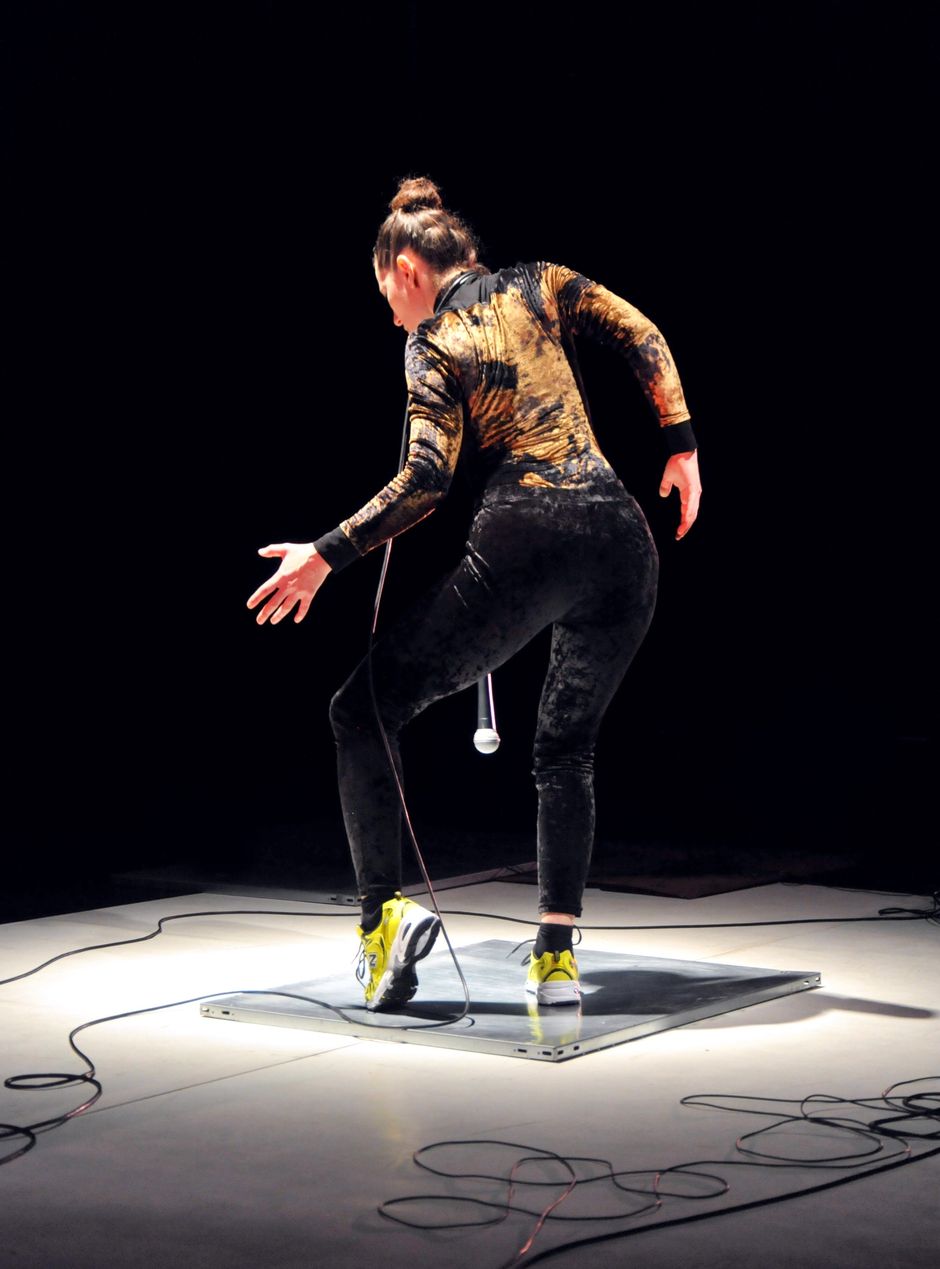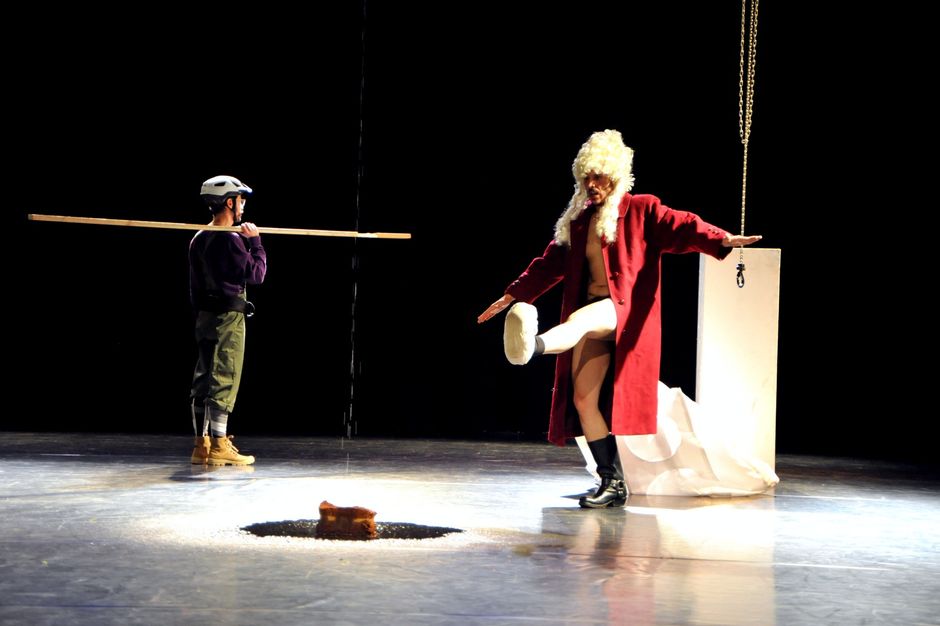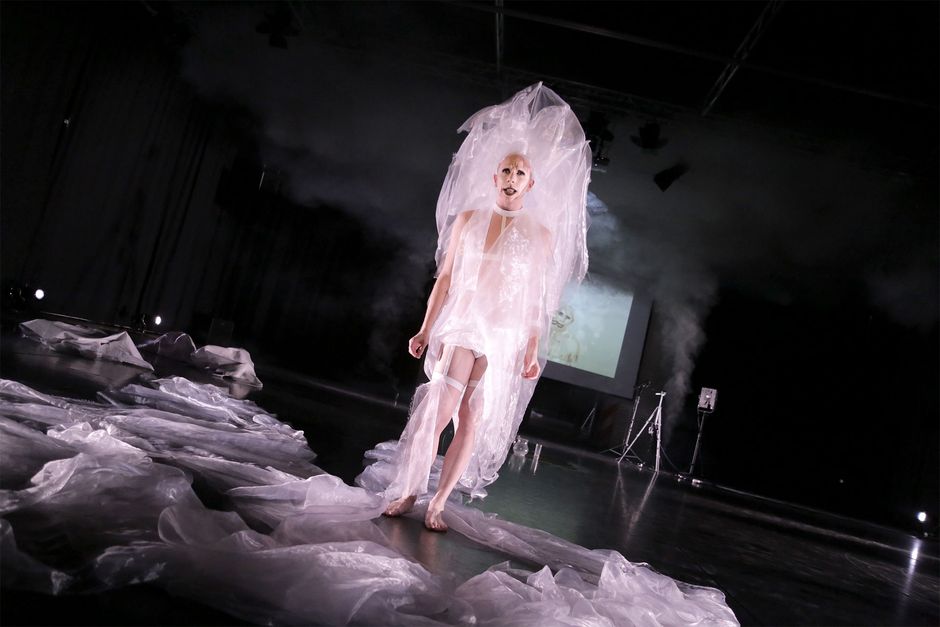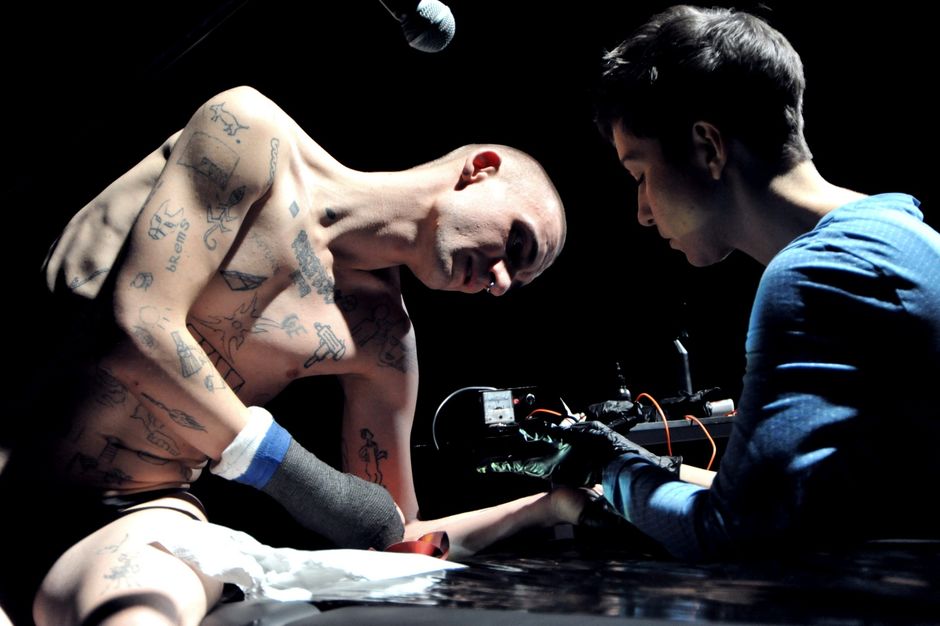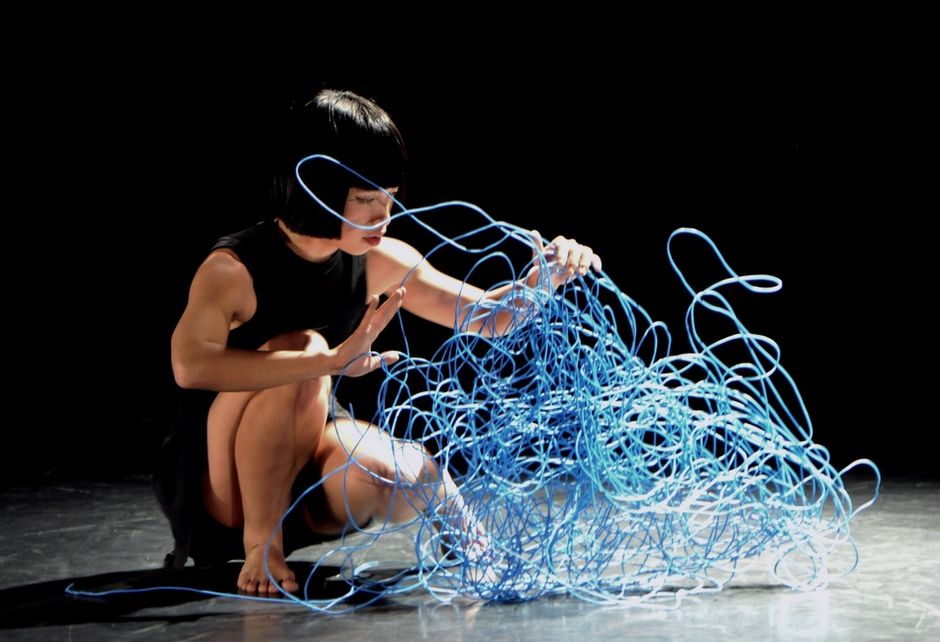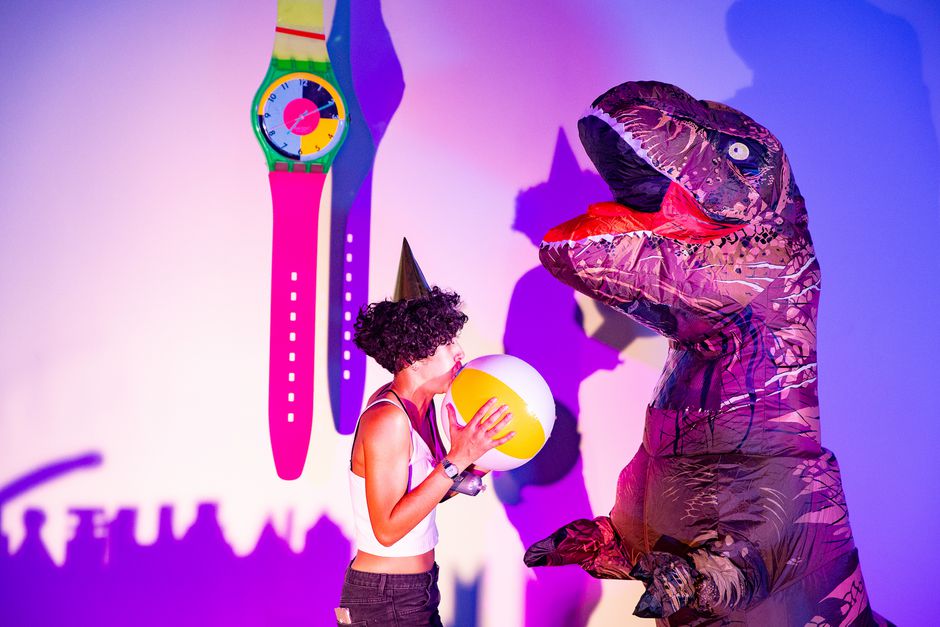MA Solo/Dance/Authorship (SODA)
Master of Arts
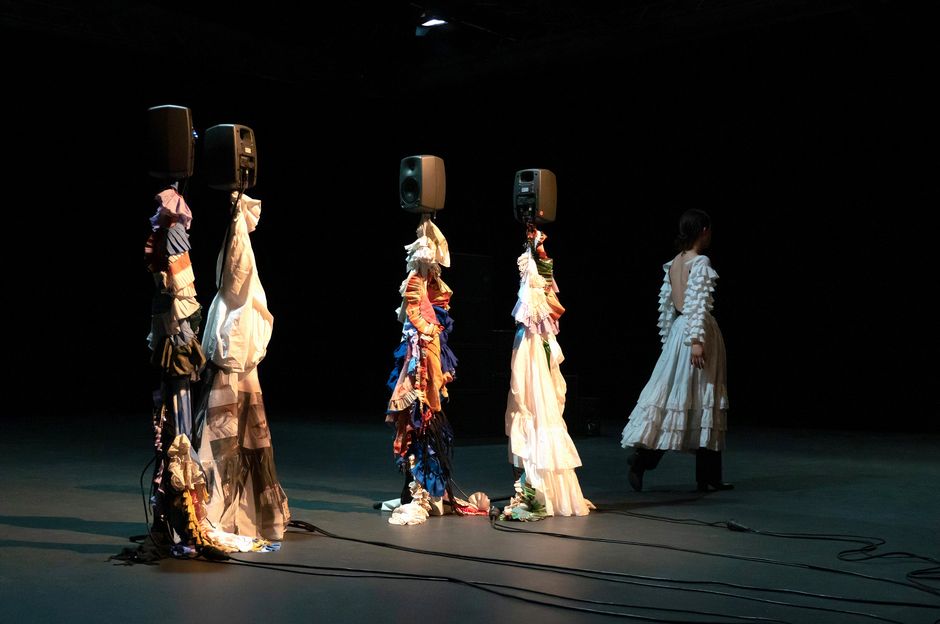
Bewerbungsfristen und Voraussetzungen
15. Januar - 28. Februar 2024 für das Sommersemester des Jahres 2025.
Alle Informationen zur Zulassung sowie die Bewerbungsanträge finden Sie auf der Seite der Universität der Künste Berlin >
MA Solo/Dance/Authorship (SODA) ist ein praxisgeführter Masterstudiengang, der in Form eines zweijährigen Vollzeitprogramms körper- und bewegungsbasierte performative Praktiken erforscht. Dabei stehen die individuelle Entwicklung und die individuelle Forschung der Studierenden im Fokus. Er bietet einen transdisziplinären Rahmen für Absolvent*innen und bereits Berufstätige, die ihre künstlerische Praxis innerhalb einer akademischen Struktur hinterfragen, erweitern und transformieren möchten. Ein lebendiges und unterstützendes Umfeld ermutigt die Studierenden, ihre spezifischen Realitäten und Anliegen durch verschiedene Forschungsansätze innerhalb und außerhalb der Künste weiter zu entwickeln.
Ein körperbasierter Forschungsansatz ist angesichts der zunehmenden Komplexität des heutigen Lebens mehr denn je erforderlich. Der MA SODA versteht Körper gleichzeitig als Zeugen, Dokumente und Handelnde, und stellt die Frage, welche künstlerischen, politischen und theoretischen Strategien aus dieser Perspektive entwickelt werden können.
Der MA SODA stützt sich in seiner Auseinandersetzung mit den Schnittstellen von Ästhetik, Politik und Ethik auf die Vielfalt der Praktiken, die von Studierenden mit unterschiedlichen Hintergründen in die Arbeit am HZT eingebracht werden. Ein kritisches Bewusstsein für bestehende Systeme und Praktiken der Wissensproduktion in Bezug auf den Körper steht im Mittelpunkt unseres Ansatzes. Dies erfordert eine Auseinandersetzung mit bestehenden geopolitischen, ökonomischen und symbolischen Hegemonien.
Der MA SODA ist so konzipiert, dass Studierende ihre körperbasierte Forschungen konsequent und strukturiert weiterentwickeln können. Dies geschieht im Dialog mit anderen Künstler*innen, Denker*innen und Praktiker*innen durch eine Vielzahl von Formaten. Mit besonderem Augenmerk auf die kontextuelle Verortung, das Schreiben und Sprechen über die eigene künstlerische Praxis unterstützt der MA SODA Studierende, ihre Arbeit in einem öffentlichen Kontext zu formulieren, zu dokumentieren und zu präsentieren.
Der MA SODA arbeitet mit einem breiten Spektrum an internationalen Gastdozierenden sowie Mitglieder der freien Berliner Kunstszene zusammen. Der Studiengang wird in englischer Sprache unterrichtet.
Bewerbungsinformationen
Bewerbungsfristen und Voraussetzungen
15. Januar - 29. Februar 2024 für das Sommersemester des nächsten Jahres 2025
Ihr Bewerbungsprozess - Schritt für Schritt
Alle Informationen zur Zulassung sowie die Bewerbungsanträge finden Sie auf der Seite der Universität der Künste Berlin >
The MA SODA study course is divided into six modules over four semesters
Semester 1/ Module 101: Questions of Practice 1
Diagnostics/ Writing & Research for Artists/ Making New Work (20 credits) takes three key approaches to making and thinking practice: diagnostics - the ability to share processes of making work; writing & research for artists - the ability to place practice in relation to language and identify and utilize appropriate research methods with which to develop practice; making new work - the ability to identify and develop new approaches to making and thinking practice. The module takes the student’s own practice-led and analytical account of engagement with choreographic/ performance processes and associated discourses as its starting point.
Semester 1/ Module 102
Negotiating Solo/Dance/Authorship - Lecture/ Seminar Series 1 (10 credits) explores the critical, contextual and theoretical understanding of key terms of the course in relation to individual students' development of practice and that of others. The first series of lectures/seminars addresses the contexts, implications and relationships of the key terms of the MA - 'solo', 'dance' and 'authorship' - in relation to contemporary arts practice and theory. The lectures are linked to seminars that involve reading and discussion of key works, performances and texts to establish a base for the critical discussion of individual work and a written paper.
Semester 2/ Module 201
Questions of Practice 2: Compositional Strategies & Tactics (20 credits) examines the work process of composition as research through artistic practice by exploring and testing various compositional strategies, tactics and work processes and analyzing the aesthetic and cultural contexts that make them possible and support them. Students continue to develop documentation and critical reflection in a workbook. At the end of the module, a formal proposal for independent and collaborative research in Semester 3 is submitted.
Semester 2/ Module 202
Compositional Practices & Contexts: Lecture/ Seminar Series 2 (10 credits) addresses questions of thinking and making contemporary practice in relation to the histories and strategies of 20th and 21st century compositional practice and contexts. The seminars involve reading and discussion of key works, performances and texts, and relating to the ongoing development of individual work through a written research paper.
Semester 3/ Module 301
Independent & Collaborative Research (30 credits): following an initial independent research proposal at the end of Semester 2, students embark on a sustained programme of individual research designed and structured in discussion with tutors. Research identifies and works with special areas of concern and with the acquisition of specific skills and knowledge. Students are invited to propose research mentors to accompany their progress and to be involved in collaborative research and curational projects during the semester.
Semester 4/ Module 401
Final SODA Project & Documentation (30 credits) involves the production of a work that engages with solo and/ or collaborative dance authorship, can be performed or presented in the public arena and meets conceptual, aesthetic and production criteria that apply in wider professional arts communities and/ or the cultural context for which the work is designed. Students prepare an initial proposal for their project at the end of Semester 3 that is negotiated and finalized with the core staff tutor and the project mentor toward the beginning of the final Semester 4. The Final Project documentation provides an opportunity for students to engage in detailed documentation and reflection on their work. The documentation takes the form of a substantial critical framing statement that positions the work in relation to the student's own experience and to wider cultural and aesthetic questions and conditions, and a final workbook devoted to the compositional, conceptual and contextual processes of the project.
FAQ
Ja. Eine Online-Informationssitzung findet am Mittwoch, den 7. Februar 2024 von 14:00-15:00 Uhr MEZ statt. Dort erhalten Sie einen Überblick über das Studienprogramm und haben die Möglichkeit, allgemeine Fragen zu stellen. Um an der Informationsveranstaltung teilzunehmen, senden Sie bitte bis spätestens zum 31. Januar 2024, 14:00 Uhr MEZ eine E-Mail an soda_support[at]hzt-berlin.de. Sie werden einen Zoom-Link und ein Passwort erhalten.
Wenn Sie nicht an der Informationsveranstaltung teilnehmen können und allgemeine Fragen haben, die nicht auf den Webseiten des HZT oder der UdK beantwortet werden, wenden Sie sich bitte an soda_support[at]hzt-berlin.de.
Einige allgemeine Angaben zur Zugänglichkeit finden Sie auf der Website der UdK.
Wenn Sie weitere Fragen zur Barrierefreiheit haben, können Sie uns gerne unter accessibility[at]hzt-berlin.de kontaktieren.
Es gibt keine Altersbeschränkung für Bewerber*innen. Der MA SODA ist offen für alle, die ihre bestehende körperbasierte Performance-Arbeit und Forschungspraxis weiterentwickeln möchten.
Im Interesse der Fairness gegenüber allen Bewerber*innen können wir keine privaten Feedbackgespräche anbieten. Wenn Sie Fragen zum Bewerbungsverfahren haben, nehmen Sie bitte an unserer Online-Informationssitzung am Mittwoch, den 7. Februar 2024 von 14:00-15:00 Uhr teil. Dort erhalten Sie einen Überblick über das Studienprogramm und haben die Möglichkeit, allgemeine Fragen zu stellen. Um an der Informationsveranstaltung teilzunehmen, senden Sie bitte bis spätestens zum 31. Januar 2024, 14:00 Uhr MEZ eine E-Mail an soda_support[at]hzt-berlin.de. Sie werden einen Zoom-Link und ein Passwort erhalten.
Eine Beschreibung dessen, was der Prüfungsausschuss in seine Erwägungen einbezieht, finden Sie auf der UdK-Website.
Einzelheiten zu einigen Studienfinanzierungen und Stipendien finden Sie in Abschnitt 2 unserer Seite Hilfe und Förderung.
Ja. Ein BA in Tanz oder einem verwandten Studiengang ist keine Voraussetzung für die Bewerbung zum MA SODA.
Der MA SODA-Lehrplan beinhaltet keine bestimmte Bewegungstechnik. Die HZT-Kurse beinhalten jedoch gelegentlich einige Bewegungskurse, die auch für MA-Studierende zugänglich sind. Außerdem ist das HZT Teil eines Studiokomplexes, der sich die Räumlichkeiten mit der Tanzfabrik teilt. Die Tanzfabrik ist eines der wenigen Tanzstudios in Berlin, die Bewegungsunterricht in fortgeschrittener Technik anbieten.
Nein. Der MA SODA ist ein Studienprogramm, bei dem der Schwerpunkt auf dem kollegialen Austausch in einer unterstützenden Gemeinschaftsumgebung liegt. Sowohl in verschiedenen Lehrformaten als auch in der unabhängigen Forschung arbeiten die Studierenden in unmittelbarer Nähe zueinander, was den Austausch und die Erweiterung von Ideen und Praxis fördert.
